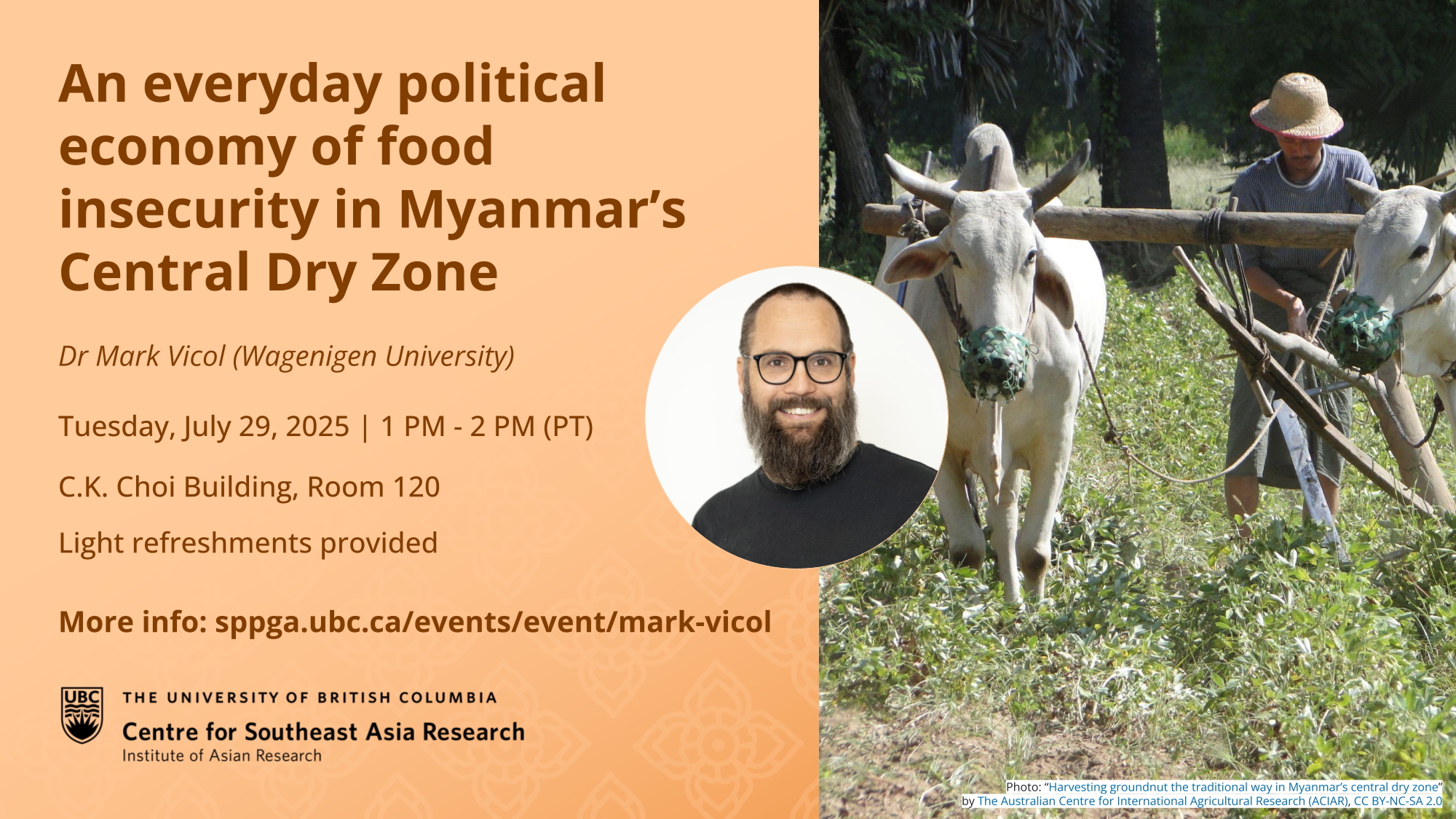Join us for this UBC Future of Food global dialogue series talk on how optimizing the use of organic amendments and cover crops can maximize agronomic and environmental benefits with Dr. Gabriel Maltais-Landry.
April 7, 2017
3:00 pm – 4:00 pm
MCML 154, MacMillan Building, UBC Vancouver campus
  |
Gabriel Maltais-Landry is a postdoctoral fellow at UBC ‘s Faculty of Land and Food Systems. He works primarily with the Sustainable Agricultural Landscapes Lab and Centre for Sustainable Food Systems. Dr. Maltais-Landry’s talk will focus on how optimal nutrient management is a critical aspect of sustainable farming systems, where nitrogen (N) and phosphorous (P) must be supplied in sufficient quantities to maximize crop yields and maintain soil fertility while preventing over-fertilization that results in environmental degradation. Organic amendments – manures and composts – and cover crops recycle N and P within farming systems, reducing the use of mineral fertilizers while potentially lowering nutrient losses to surrounding ecosystems. The aim of Gabriel’s research is to optimize the user f organic amendments and cover crops to maximize yields and balance eN and P budgets in intense agroecosystems. Using several experiments established at the UBC Farm, several trade-offs were identified among crop productivity, balanced N and P budgets, and greenhouse gas emissions (GHG), where treatments with the highest yields resulted in N and P over-fertilization and higher GHG emissions. In addition, there was little evidence that cover crops prevented wintertime N leaching from occurring, although cover crops contributed to N cycling nevertheless. Overall, my research highlights the inherent challenges in balancing N and P while maintaining high yields when using organic amendments and cover crops as primary sources of fertility in intensive vegetable farming systems.
  |
This event is part of the UBC Future of Food Global Dialogue Series, a campus-wide initiative bringing together food security and sustainability experts from across the university and North America to regularly engage the UBC community and the public around the Global Food System, including topics such as climate change, food security, biodiversity, social justice, culture, and policy.
Find dates and details for upcoming events in the Event Calendar. Follow the discussion with #UBCFutureOfFood on Twitter.

